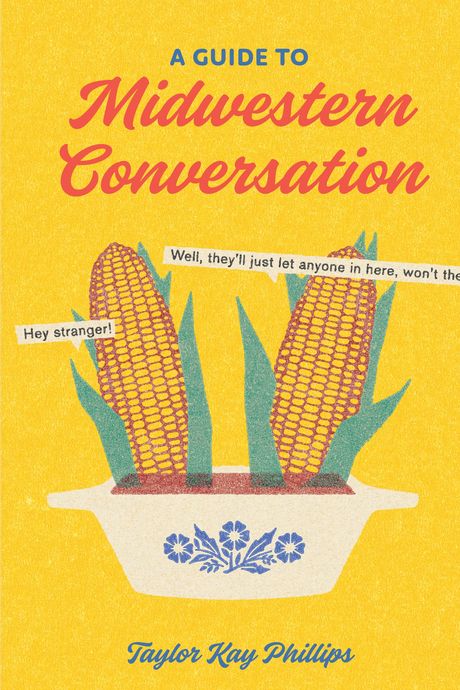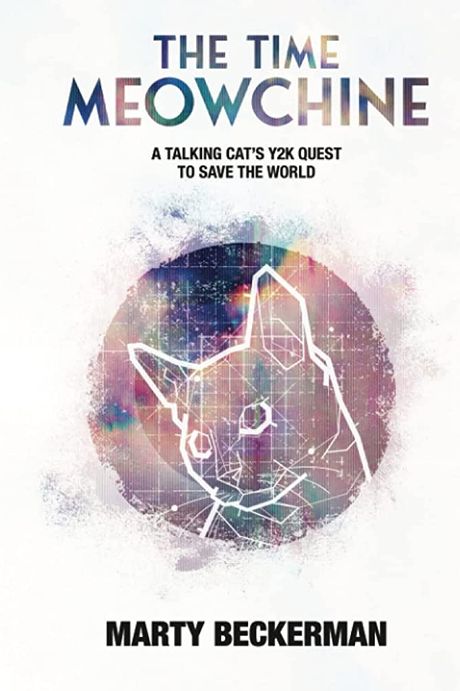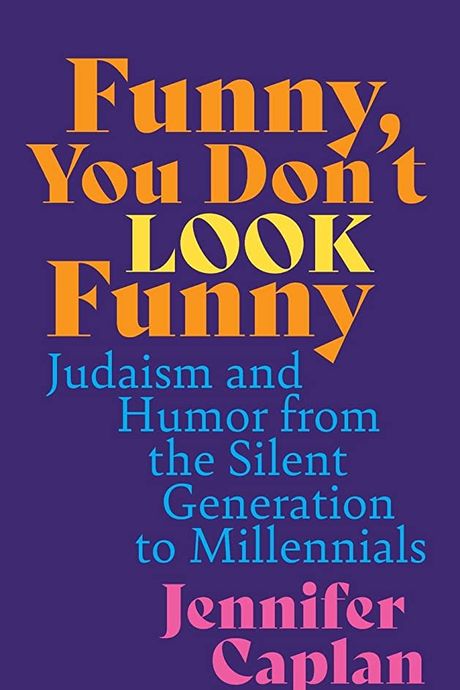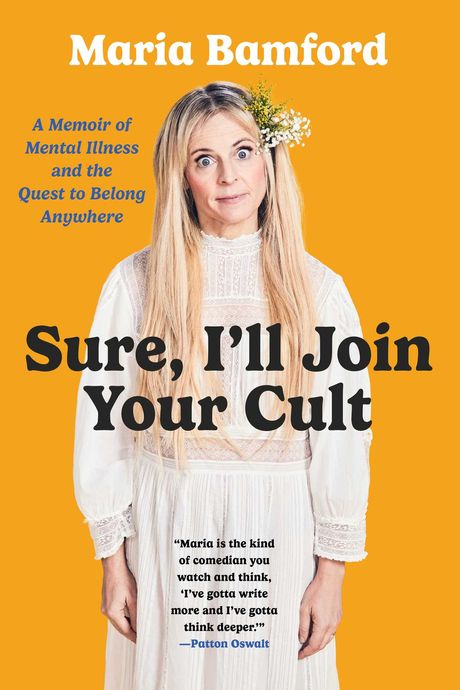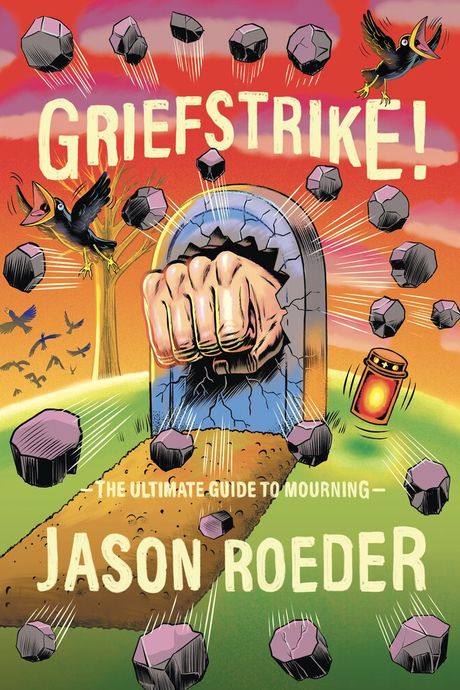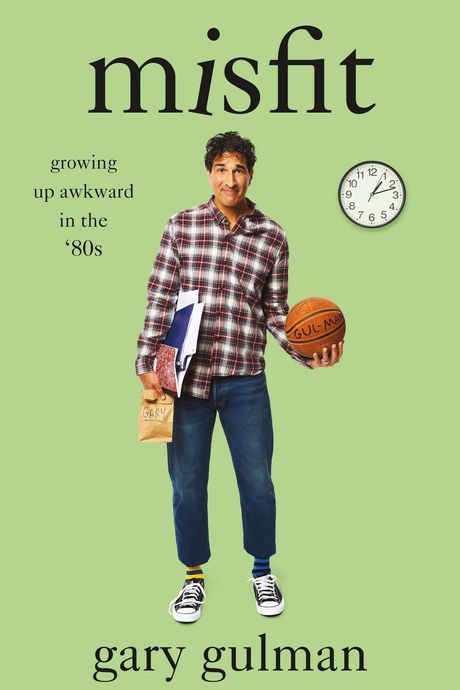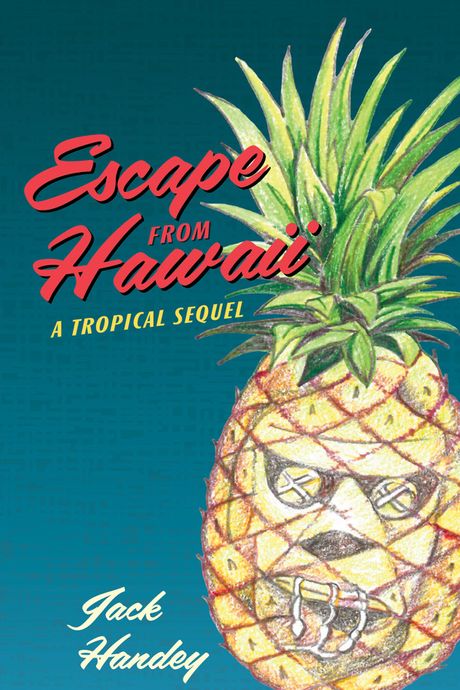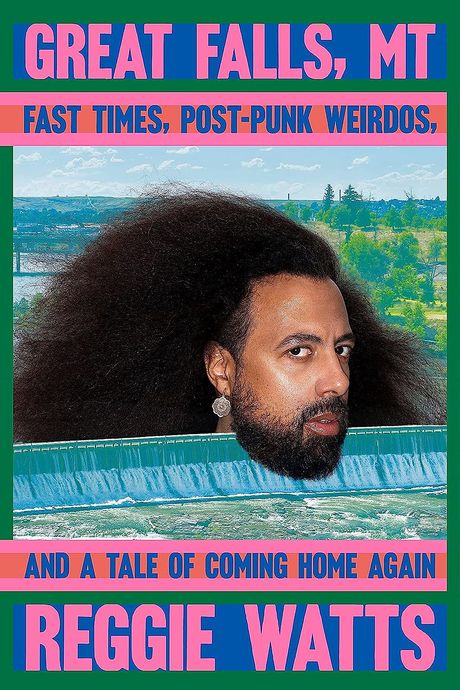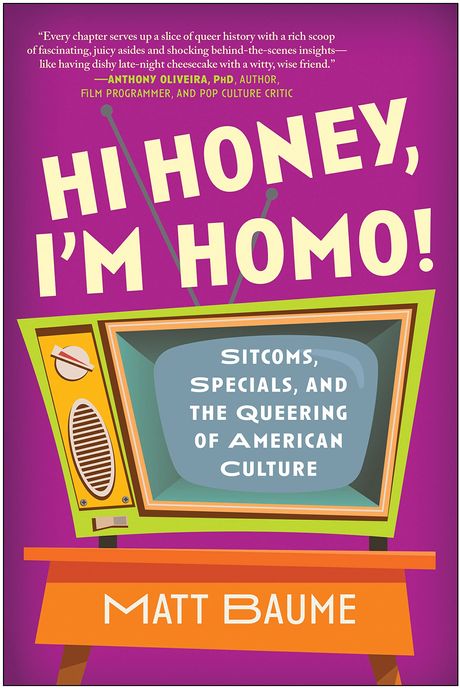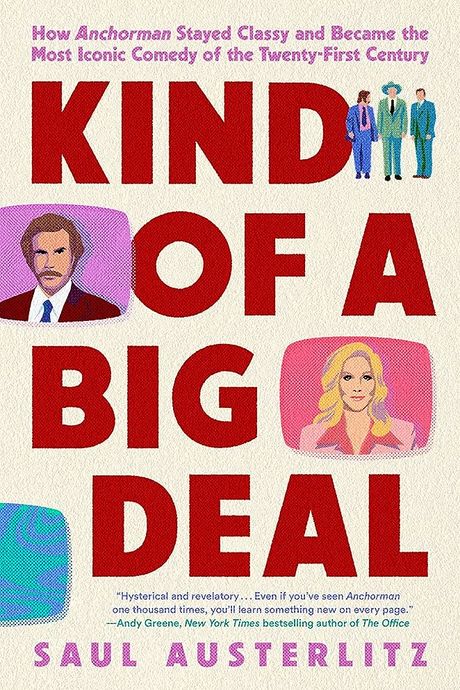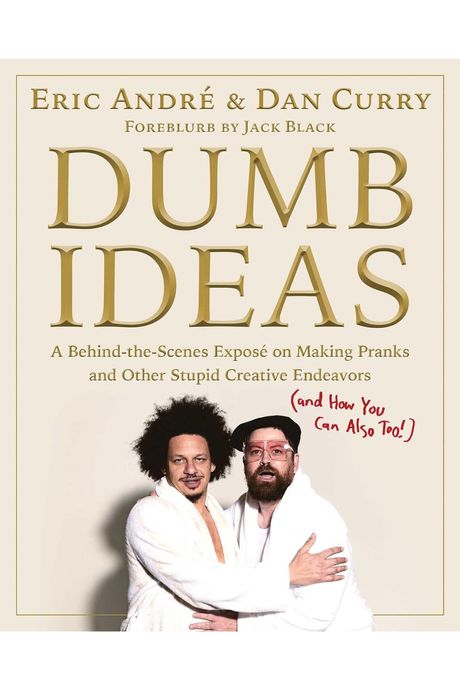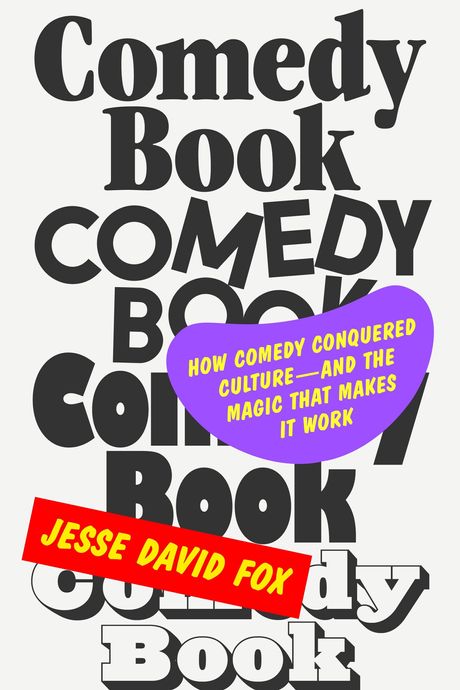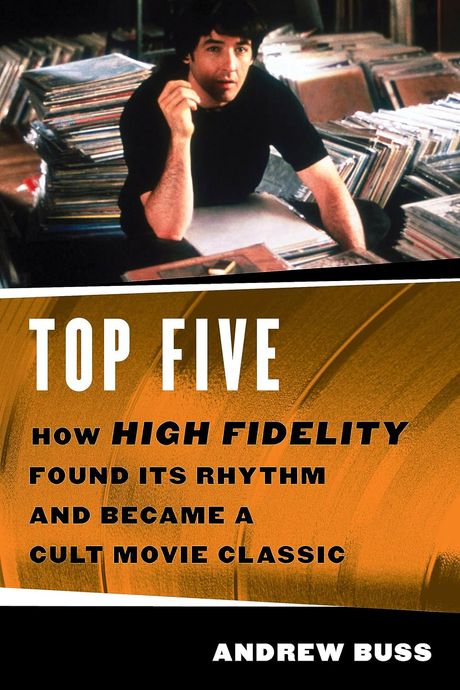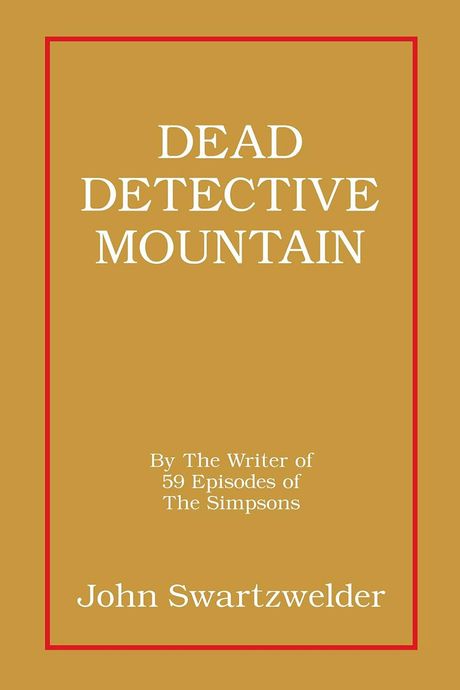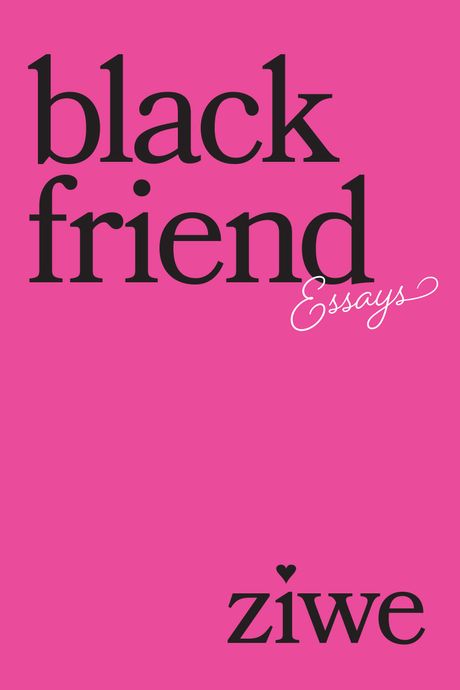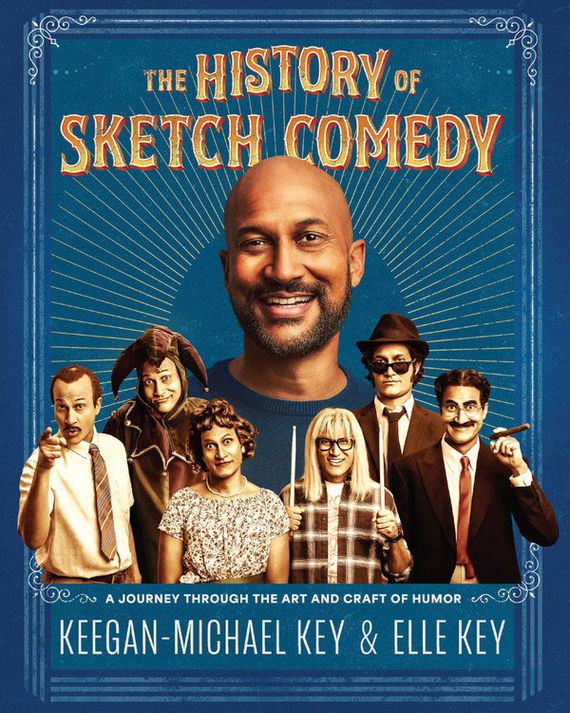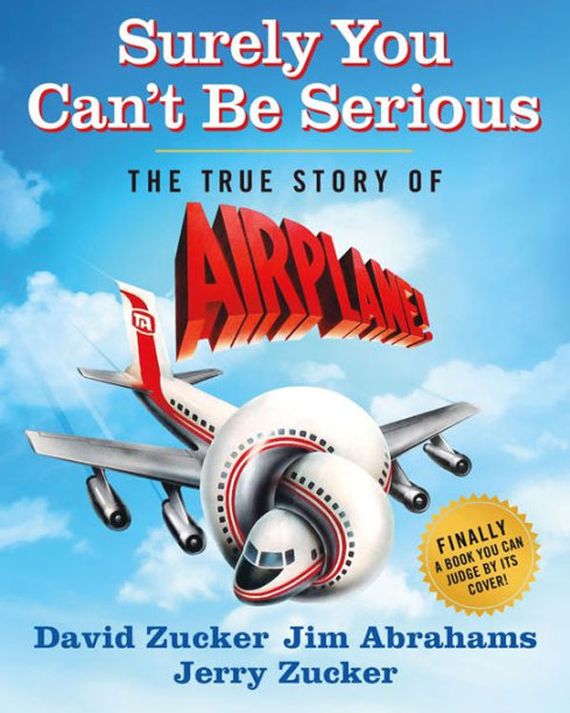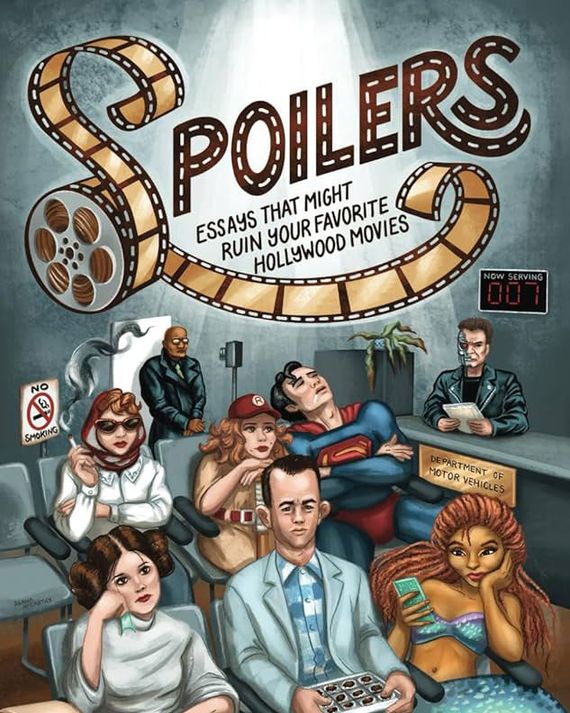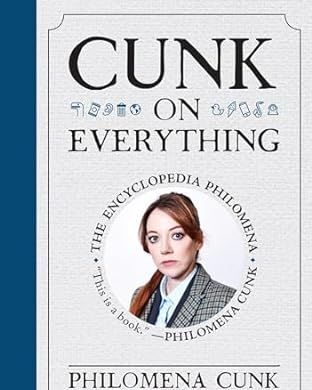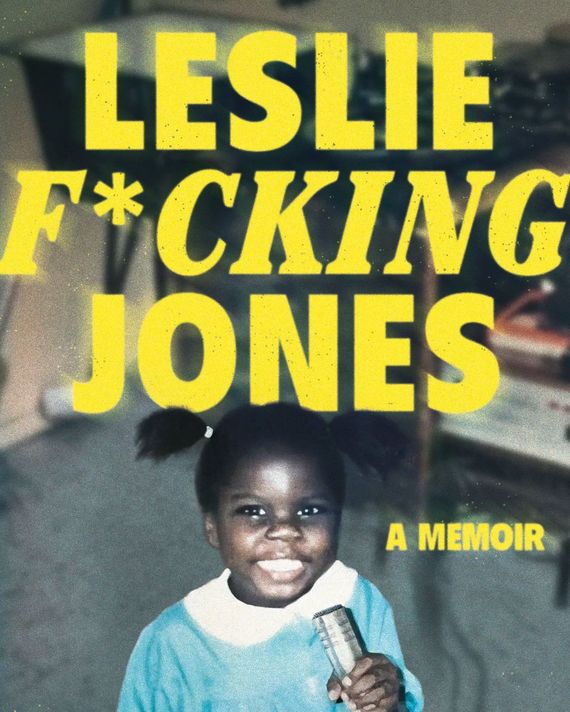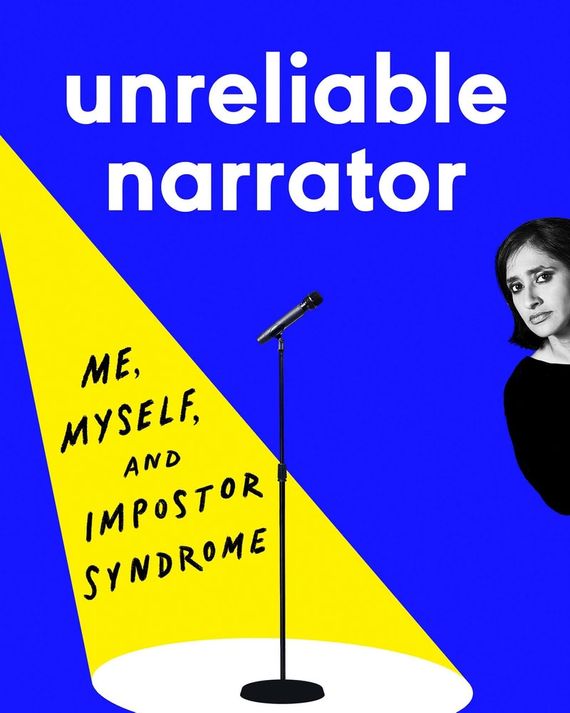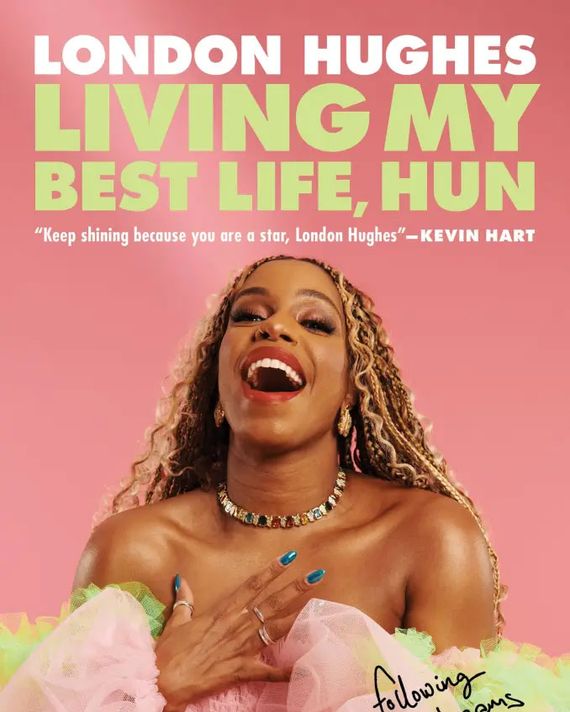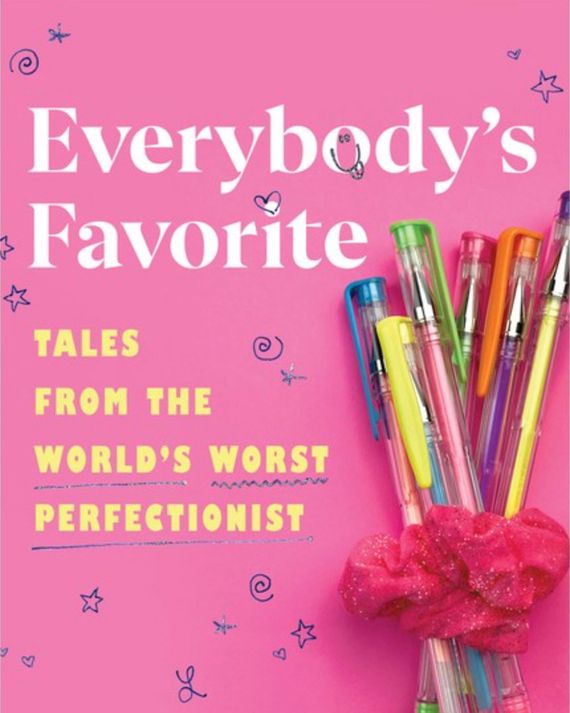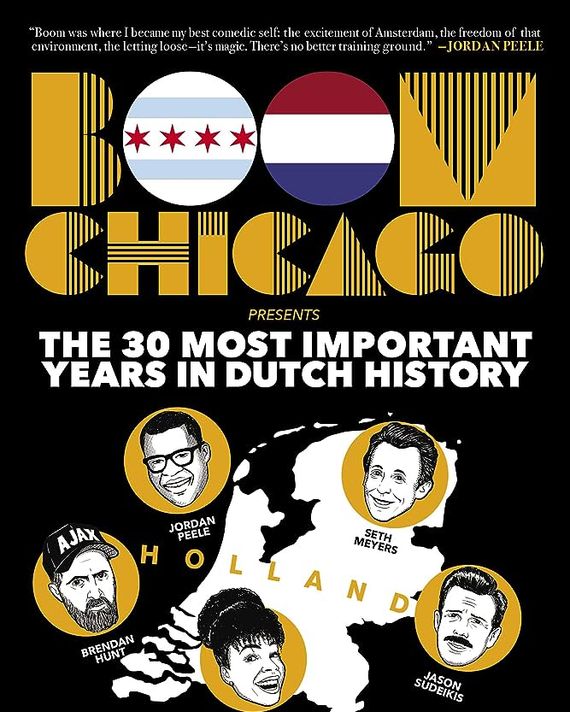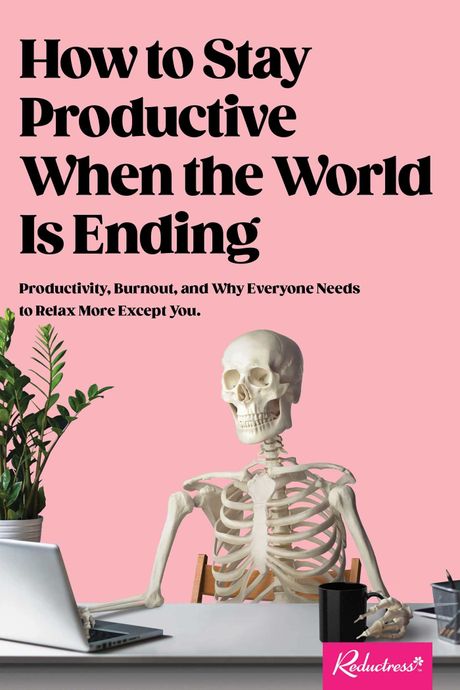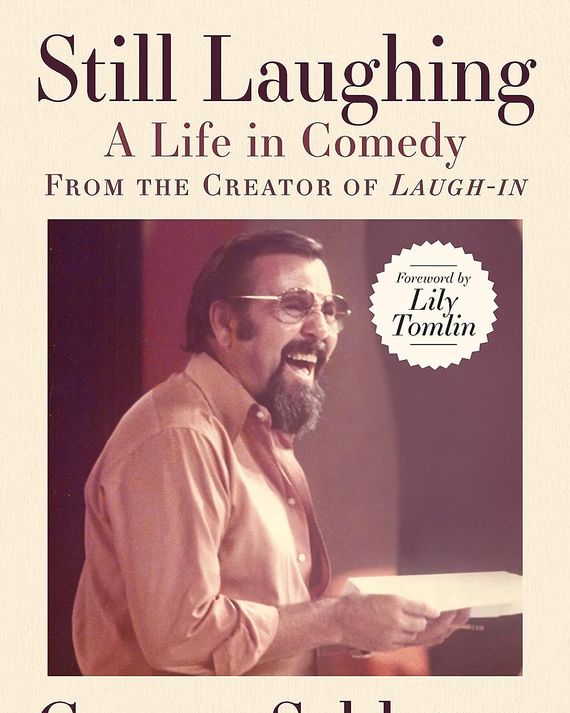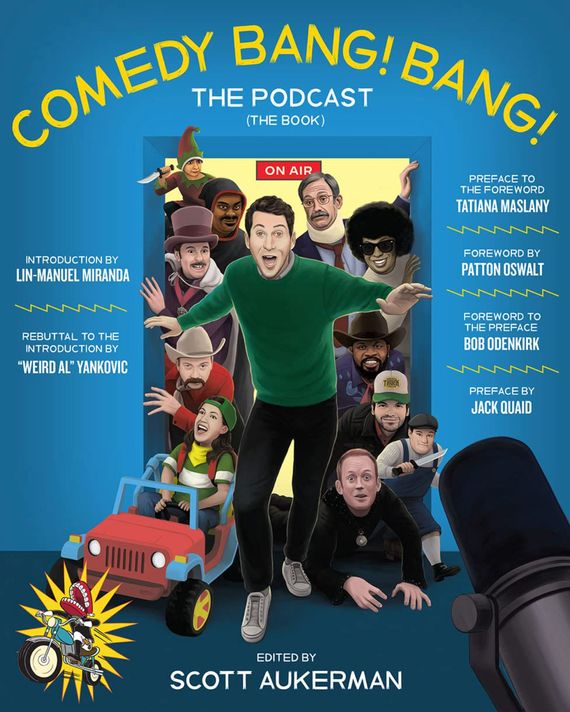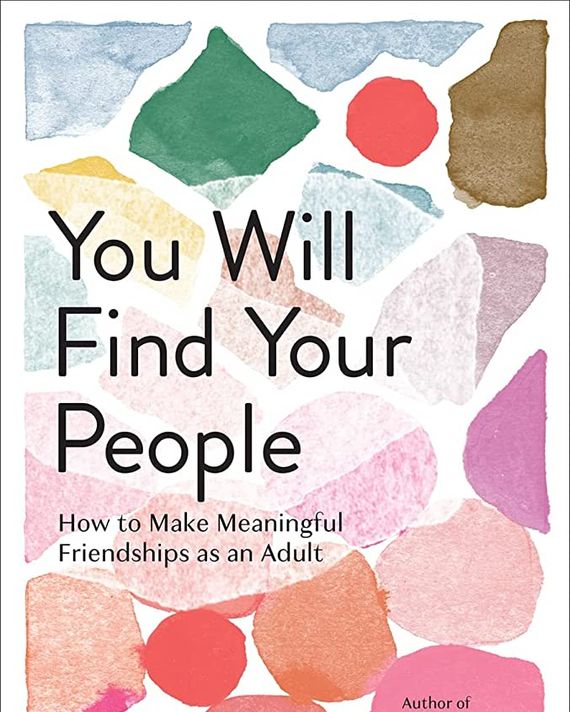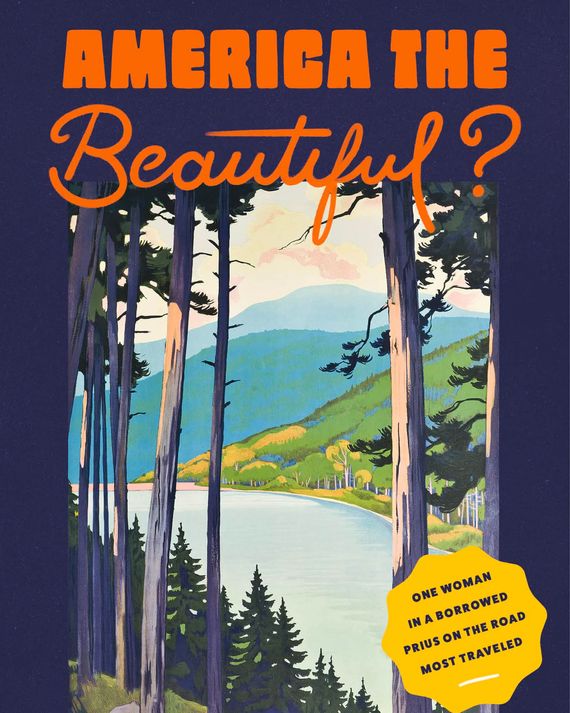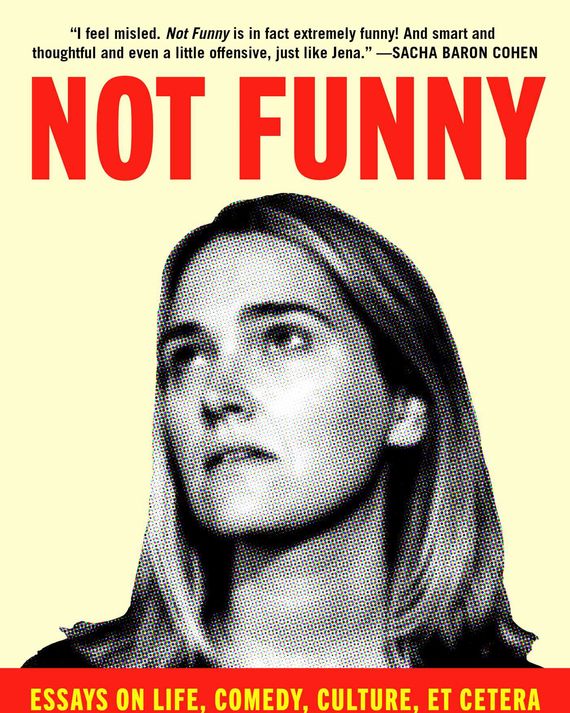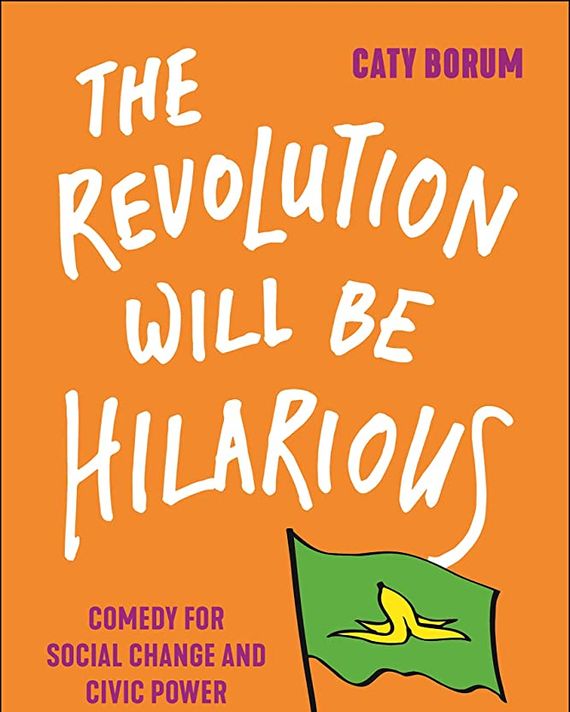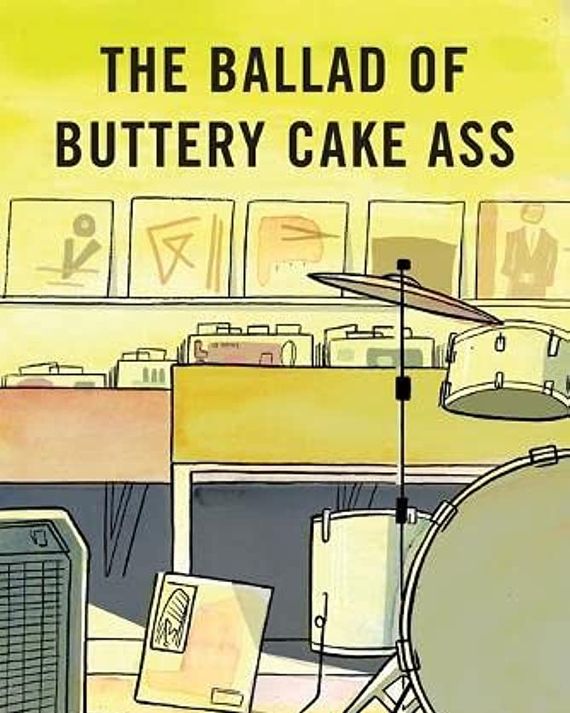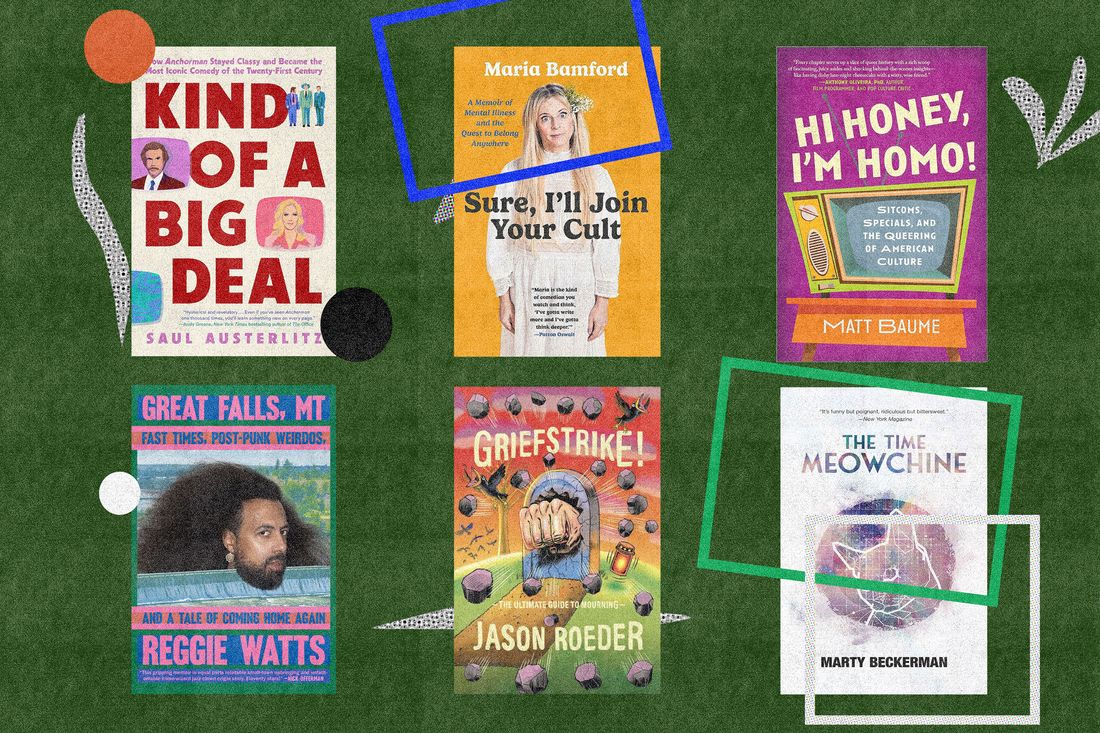
Along with — and probably because of — an increasingly world-weary world, comedy, and the way that we consume it, has matured. I’m loath to use the word seriously, but comedy has reached a level of intellectual, academic, and almost scientific attention. There’s a particular joy in picking comedy apart to see how and why it works when it works. If comedy is about understanding the human experience and sharing those universal truths, then such nitpicking and analysis of the subject at hand is a different means to the same end.
In 2023, comedy was aimed inward — at least in the books, the permanent, literary time capsule of the year. In the past 12 months, we got long-awaited glimpses into the backgrounds, motivations, and creative processes of some of the most steadfastly original comedians out there in the form of their memoirs. We also got new works of boundary-pushing, self-conscious funny fiction from provocative new authors and comedy gods alike. Another group of authors turned out grad-school-level texts on the historical, cultural, and emotional fallout of comedy, if not exhaustive looks at towering comic phenomena. Here, then, are the best books released in 2023 that are about comedy or made primarily of comedy.
10.
A Guide to Midwestern Conversation, by Taylor Kay Phillips
Taylor Kay Phillips’s A Guide to Midwestern Conversation is a wildly entertaining, precisely critical, and lovingly mocking taxonomy of the people of “flyover country.” Of her own quintessentially midwestern brethren, Phillips (a staff writer at Last Week Tonight With John Oliver) breaks down the elements of the aggressively normal — those friends, relatives, and acquaintances who are content to drive around, eat a lot of casseroles, reluctantly entertain guests, engage in gift-giving one-upmanship, and never ever say what they’re thinking or feeling. If you have a passive-aggressive person in your life, even if they aren’t from the Midwest, you will find A Guide to Midwestern Conversation rather cathartic.
9.
The Time Meowchine: A Talking Cat’s Y2K Quest to Save the World, by Marty Beckerman
What can I, as a critic, tell you when the book’s subtitle lays everything out so bluntly and hilariously? You’re either going to read this right now or permanently reject it with disgust over its dad-joke title and spoofy sci-fi elements. Clearly influenced by The Time Machine and Slaughterhouse-Five, it’s actually a well constructed time-travel novel with a palpable authorial commitment to eliminating paradoxes and plot holes so common in the genre. Dr. Tara Switcher lives in 2040 in a hellish, post-climate-change world with a robot cat. That timeline is the result of the book’s other timeline, which begins in 2000, where Tara is a Nader-loving young environmentalist living amid Y2K anxiety. Thanks to her talking cat and brilliant technology, Tara might be able to reverse global and personal catastrophe by changing the past. It’s funny but poignant, ridiculous but bittersweet.
8.
Funny You Don’t Look Funny: Judaism and Humor from the Silent Generation to Millennials, by Jennifer Caplan
It’s a cliché, if not a cringey joke at this point, to mention how humor is a big part of Jewish culture; Caplan’s history of comedy as it relates to the 20th-century Jewish experience is as entertaining as its subjects, examining how the last few generations of Jewish Americans have held humor in high esteem and use its tools to express cultural identity. Funny You Don’t Look Funny reveals that as the Jewish American community has changed, American comedy developed in parallel. Early 20th-century entertainment was very racially and culturally targeted — vaudevillian, ethnic-based humor and early sitcoms like The Goldbergs, for example. But 100 years later, because of mainstream entertainers whose Jewish identity influenced and permeated their works, which carry on the tropes of Jewish humor — Joseph Heller, Larry David, and the Coen brothers, in particular — Jewish comedy is American comedy.
7.
Sure, I’ll Join Your Cult: A Memoir of Mental Illness and the Quest to Belong Anywhere, by Maria Bamford
This memoir from the dazzlingly singular comic Maria Bamford is the backstory to her act, the setups to all her jokes and bits based on personal interactions with friends, relatives, and enemies. Turns out, Bamford’s onstage persona is very similar to her real self, at least according to Sure, I’ll Join Your Cult. Both Bamfords are forever self-analyzing, trying to find a reason for their shared perceived weirdness. And here is the record of that journey. Bamford has involved herself in numerous self-help programs, communities, and healthy activities, all of which she feels meet the definition of a cult. This book is a life story, but one where the author is more interested in the “why” of her past than the “how.”
6.
Griefstrike! The Ultimate Guide to Mourning, by Jason Roeder
It’s relatively easy to make fun of death. It takes true nuance and comic skills to skewer the deeply unpleasant and universally human experience of grief. Roeder, who’s previously written for The Onion and McSweeney’s, is up to the task with Griefstrike! — a memoir in the form of a third-person faux manual. Roeder wrote the book as part of his own process in coming to terms with the loss of his mother, which serves as a selfless public service to those who need it. Humor can and should be defiant and transgressive against the overwhelming forces that dictate our lives, and there’s nothing more imposing than death, which we fearfully romanticize. (To wit: the “Surefire Eulogy Starters” Roeder offers, including “I’m going to keep this short, as my mother always said my speaking voice was a source of humiliation and sorrow.”) While earnestly offering legitimately helpful advice, Roeder shows readers that there’s a way to grieve beyond weeping one’s way through self-help manuals — that one can process it through laughter, an emotional response almost as powerful as sadness. Here, the reader laughs with the dead and grief-stricken, never at them.
5.
Misfit: Growing Up Awkward in the ’80s, by Gary Gulman
Gary Gulman’s memoir is a two-for-one deal. Three-quarters or so is a collection of hilariously self-deprecating anecdotes and episodes about a well-lived upbringing, the theme of which is that the author was an old soul, an old man and unabashed fraidy cat dealing as best and as detached as he could from whatever life threw at him in the 1980s. As if to prevent the rosy-glassed nostalgia from taking over, and in a move that reflects his light-dark stage act, Gulman intercuts the whimsical delightfulness with a through-line of a contemporary — and devastating — depressive episode. Misfit is thus transformed from one of the funniest memoirs in years into a harrowing account of mental illness, too.
4.
Escape From Hawaii: A Tropical Sequel, by Jack Handey
With definitive Saturday Night Live sketches like “Toonces the Driving Cat” and “Unfrozen Caveman Lawyer,” writer Handey proved himself a master of short-form comedy, and with “Deep Thoughts,” he showed he could do ultra-short-form comedy, too. He pretty much invented the Twitter joke. Somehow, Handey took that format — a whimsical paragraph setup that finishes in a hilarious, original, and absurd punch line — to long-form fiction, first with his 2013 novel, The Stench of Honolulu, and now with the sequel, Escape From Hawaii. To tell a story with beats and character development in which every paragraph includes amusingly circular wordplay, a laugh-out-loud quip, or both is a feat of high-level humor craft. Those jokes serve the already very funny plot, in which the obliviously annoying protagonist “Wrong Way Slurps,” imprisoned due to the events of The Stench of Honolulu, attempts to flee. In this narrative, Hawaii is a hellhole of a nightmare world, a land full of giant owls, sexy turtle-people, and predatory helicopter companies. And then there’s the actual hero and breakout character of Escape: Don, Slurps’s old frenemy, reimagined as a sentient and scrappy shrunken head.
3.
Great Falls, MT: Fast Times, Post-Punk Weirdos, and a Tale of Coming Home Again, by Reggie Watts
The rhythms, spontaneity, and wide-eyed curiosity of Watts’s singular musical-comedy act work monumentally well as a book. The experimental bandleader from Comedy Bang! Bang! and The Late Late Show doesn’t get deep and personal very often, but he does in his warm and often suddenly funny autobiography, less of a memoir and more a tribute to the people, places, and things that inspired his art and made him whole. Most affecting: Watts’s visceral and immersive first-hand account of the ’90s grunge boom and the comedy scenes from later in that decade along with some sweet and honest passages about his parents.
2.
Hi Honey, I’m Homo!: Sitcoms, Specials, and the Queering of American Culture, by Matt Baume
Baume is a pop-cultural chronicler with a focus on LGBTQ history and TV, and in Hi Honey, I’m Homo he lays out — with authority and a deep love — the enormous and crucial role that mainstream sitcoms played in increasing visibility, tolerance, and acceptance for gay and lesbian Americans. It’s a fascinating, and downright inspiring, look at the ways cornball sitcoms either expressly included coded messages, subtext, and characters that marginalized groups could identify with, like the witches who must keep their identities secret on Bewitched. Who even knew that a fine but forgettable show like the cop comedy Barney Miller (1975-1982) featured one of the longest-running and most richly developed plot arcs about a gay couple in TV history to that point? This says nothing of the bold allyship of The Golden Girls, or how Will and Grace and Modern Family showed middle America that coastal LGBTQ people were just, like, people. Hi Honey, I’m Homo is a heartbreaking historical document, but ultimately one that will leave the reader feeling proud of how something as maligned and disposable as the network sitcom used comedy to bring about such profound and important social progress.
1.
Kind of a Big Deal: How Anchorman Stayed Classy and Became the Most Iconic Comedy of the Twenty-First Century, by Saul Austerlitz
Anchorman is one of the last great broad, blockbuster comedies, densely packed with over-the-top characters, jokes, catchphrases, and set pieces. It’s great to see it get the full, exhaustive, appreciative analysis and oral history, a treatment afforded to all iconic culture. Saul Austerlitz was the perfect author for the job; he’s a comedy history professor and wrote Generation Friends about Friends. He takes comedy seriously and respectfully, but also lovingly and critically, the right approach for Anchorman, which, Austerlitz posits, was a flash point for funny films. Anchorman was clearly a blast to work on and a labor of love for star-writer Will Ferrell and director-writer Adam McKay. It was also difficult to make but allowed collaboration and improv, revolutionary concepts in filmmaking in the 2000s. Kind of a Big Deal also details in slow motion the schism brewing between Ferrell and McKay. One guy wanted constant, glorious, ridiculous jokes; the other wanted to take down society’s toxic dinosaurs. Anchorman has both, of course — as much anchor fights and jazz flutes as it does thoughtful commentary on gender politics and toxic masculinity.
Other Highlights From This Year
Dumb Ideas: A Behind-the-Scenes Exposé on Making Pranks and Other Stupid Creative Endeavors (and How You Can Also Too!), by Eric André and Dan Curry
The street pranks and celebrity ambushes that comprise The Eric Andre Show are so precise, original, and well executed that viewers can’t help but wonder how the host, his crew, and writers (including head guy Curry) pull them off. Herein is the riveting backstage guide to how The Eric Andre Show gets made, but it’s also a creative manifesto that the reader can use to make comedy of their own — specifically, how to viciously prank their loved ones.
Comedy Book: How Comedy Conquered Culture — and the Magic That Makes It Work, by Jesse David Fox
If this wrap-up of the year’s best comedy books were published anywhere else, Fox’s exquisitely well-researched analytical guide to modern humor and the joys of making and consuming it would rank high on the list. But Fox is a major creative and editorial presence at this very publication, and his influence informs a lot of the comedy coverage on this site. So it seems untoward to rank it. But if you love comedy — and you do because you’re reading this — this is one to grab.
Top Five: How High Fidelity Found Its Rhythm and Became a Cult Movie Classic, by Andrew Buss
The 2000 American movie version of High Fidelity always felt like a near classic, or almost cult favorite, overshadowed by other John Cusack movies about men trying to grow up or the seminal, extremely British source novel by Nick Hornby. Buss unpacks every last frame of the movie as well as its impact, arguing that High Fidelity the film can stand on its own as one of the better film comedies of the early millennium.
Dead Detective Mountain, by John Swartzwelder
As a sideline to his gig as one of the greatest and most prolific writers in the history of The Simpsons, Swartzwelder has self-published more than a dozen very silly, tightly plotted novels about a witless detective named Frank Burly. This one is among Swartzwelder’s best and most joke-heavy.
Black Friend: Essays, by Ziwe
A collection of reflections on life as a Black immigrant woman trying to carve out a path in her profession without compromising her integrity doesn’t sound objectively funny, but this is the illustrious Ziwe we’re talking about. A memoir presented as anecdotes, episodes, and fleeting moments, Black Friend is, like life itself, sometimes hilarious, sometimes enraging. It’s a condensed, literary version of her eponymous talk show and uses the same approach — pointed jokes open the door for commentary. For example, Ziwe describes the process of buying a dog to defend herself against racist street hecklers but winds up buying a tiny, nonthreatening Chow Chow. She also gets into an honest breakdown of her since-canceled show, and how its signature loaded question, “How many Black friends do you have?” was an attempt to make talk shows less vapid.
The History of Sketch Comedy: A Journey Through the Art and Craft of Humor, by Keegan-Michael Key and Elle Key
There’s an academic, pedantic thread that runs through modern comedy, a respectfulness for the form that, if this book is any indication, comes from the rigorous training environments of improv and performance schools like UCB and Second City. The History of Sketch Comedy is exhaustive, well-researched, and highly detailed, but it’s also lighthearted and joyful; a celebration written by exactly who it should be written by — experts of the form but who also can’t help but inject constant jokes. Keegan-Michael Key and Elle Key pepper their textbook with photos, personal experiences, and interviews with important sketch people of the last few decades and draw a through-line from vaudeville to Python to how the mechanics of sketch inform modern screen comedy.
Surely You Can’t Be Serious: The True Story of Airplane!, by David Zucker, Jim Abrahams, Jerry Zucker
The multiple-voiced, oral history approach works so well for relaying the making-of story of a big comedy project because funny films are collaborative and often, as such books demonstrate, chaotic. It’s the best way possible to tell the comprehensive tale of Airplane!, the monumental 1980 comedy film that changed the game. Operating with methods more suited to indie filmmaking than the Hollywood system, Abrahams and the Zuckers reimagined the boundaries of comedy in an already anarchic, changing environment that was already undergoing a radical transformation thanks to Saturday Night Live and National Lampoon. Surely You Can’t Be Serious breaks down step by step how filmmakers were able to secure both game newcomers and Hollywood legends (many of whom are interviewed at length) to come onboard a new kind of movie, a pioneer in the parody genre and in the nonstop joke format that would take off in the ’80s.
Spoilers: Essays That Might Ruin Your Favorite Hollywood Movies, by Carlos Greaves
Here’s a book that offers pure entertainment and well-earned laughs while subtly delivering a message about the absurdity of cultural tropes. Popular movies are a near-universal language, and it’s the currency that drives Spoilers, a collection of essays in the style of McSweeney’s or “Shouts & Murmurs,” comedy pieces built around the theme of fictional film characters engaging in real-world, human, embarrassing things. Greaves so thoroughly embodies the various voices of archetypal characters, like Ariel the Mermaid writing her salacious memoir, or the Footloose town forced to address its more insidious social ills after legalizing dancing.
Cunk on Everything: The Encyclopedia Philomena, by Philomena Cunk
Is Cunk on Everything an act of marketing, a tie-in with Cunk on Earth, the instant cult classic of a pseudo-historical documentary series hosted by Philomena Cunk, a dumb historian with a deep and abiding hatred for history? Perhaps, originally, it was meant to be a gift for Cunk fans, but it also functions as a highbrow humor book — it provides laughs for the well read and highly educated because you have to know a little bit about what Cunk is talking about to get the jokes. History shows are just visual versions of history books, so this volume functions as a companion piece, subtly mocking the pompous, British-colonist tone that usually permeates those texts.
Leslie F*cking Jones: A Memoir, by Leslie Jones
Let’s all gather now to rightfully celebrate Leslie Jones. Herein, the comic’s devastating charisma comes through on the page, and it takes the wheel in this loose, casual, meandering memoir that puts together the building blocks of the Leslie Jones persona. Leslie F*cking Jones is so frank, so funny, and so sweet, it manages that trick that most other memoirs attempt and never achieve — to make a book feel like a conversation.
Unreliable Narrator: Me, Myself, and Imposter Syndrome, by Aparna Nancherla
Comedians, by nature and necessity, are skeptics. They can and should question and summarily mock everything. Aparna Nancherla happens to be a comedian, and she uses those skills of observation to tackle the subject on which she’s an expert: herself. Unreliable Narrator is a provocatively probing examination of why comedians are the way they are — which is to say, insufferable. She’s constantly second-guessing herself but also turns things around to provide a look at the casually sexist world at large.
Living My Best Life, Hun: Following Your Dreams Is No Joke, by London Hughes
The British pop-culture industry is vast and labyrinthine, and it’s hard for an outsider to break in and break through. But London Hughes did it, becoming famous in the U.K. before the age of 30 by taking multiple paths, as a comedian, sitcom creator, and TV host. Living My Best Life, Hun casually and nonchalantly tracks Hughes’s arduous, almost Dickensian rise to success. It’s a blueprint for the machine that is the U.K. television system and also a compelling, blunt look at how making dreams come true is about making one’s own pluck.
Everybody’s Favorite: Tales from the World’s Worst Perfectionist, by Lillian Stone
Lillian Stone is among that small collective of humor writers whose names appear on like 90 percent of all the good narrative online humor published in this, the golden age of such things. In Everybody’s Favorite, she turns away from satirizing the frailties of the modern world in favor of analyzing her own life, particularly her childhood and young adulthood. The hero of her own memoir-forming collection of essays, Stone comes across as a fully fleshed-out Judy Blume character as a real adult, looking back and laughing with the reader and without shame at the moments where shame tried to gain a toehold. Everybody’s Favorite is at its most relatable, moving, and emotionally hilarious when Stone regales is with miniature, nostalgia-tinged morality plays, when relatives, neighbors, and pillars of the community try to turn her into a good little citizen or “proper” young lady, poisoning her with dogma, which she adamantly refuses.
Boom Chicago Presents the 30 Most Important Years in Dutch History
As far as generationally significant, tone-setting, comedian-developing institutions go, Second City and Upright Citizens Brigade, and their many affiliates, get almost all the attention and credit. But there’s a third, and until now, largely unheralded player, and that’s Boom Chicago. Many of today’s most thoughtful, emotionally and politically driven comedians honed their chops at Boom Chicago, an American theatrical and improvisational comedy troupe that primarily operates in Amsterdam. Jordan Peele, Seth Meyers, and Amber Ruffin are all veterans, and it’s where Brendan Hunt and Jason Sudeikis met and first worked together. Ted Lasso wouldn’t have happened without the frenetic, patient, performer-driven lab-like atmosphere of Boom Chicago. The mock-self-aggrandizing of the subtitle — The 30 Most Important Years in Dutch History — belies how Boom Chicago just is that important to 21st-century comedy. The baby-faced photos of current legends are fun, but the book’s tone of fascination and how the sausage is made provides a compelling account of how improv is crafted, and how Boom Chicago’s approach informed so much of its participants’ later work.
How to Stay Productive When the World Is Ending: Productivity, Burnout, and Why Everyone Needs to Relax More Except You, by Sarah Pallardo and Damien Kronfeld
As a parody news site, Reductress delivers a savage mockery of life’s trivial embarrassments, indignities, and personal injustices, particularly those suffered by women and millennials. That’s all here in this book written by two of Reductress’ top voices. With that signature tone of aggrieved exhaustion all while punching back against the forces which crush the humanity out of anyone young, How to Stay Productive takes aim on grind culture, and how it’s a total scam. This is a passive-aggressive business book, as if written by bosses to smugly encourage their overworked and anxiety-cursed employees to work harder. After all, you can do it, reader, for you are a “girlboss” who could probably make mental illness their whole brand on Twitter. It’s so over the top in how it paints hustle bros, corporate culture, and the gig economy that it’s dangerously close to being a real business book.
Still Laughing: A Life in Comedy, by George Schlatter
George Schlatter is an old-time Hollywood pro, a gregarious producer type whose sincere, charming bewilderment with how amazingly his life played out comes across on the page. He presents his showbiz memoir as a long string of crackling, short, and nonchalant vignettes, stretching from his entry into entertainment through his forays into the bygone era of celebrity-driven TV specials, and ultimately, to his masterpiece, Laugh-In. It’s nice to see a contemporary and critical assessment of Laugh-In, even (or especially) if it’s from one of the people responsible for it. The crowning achievement of Schlatter’s life in comedy is how he helped bridge eras of comedy and audience demographics with one impossible gambit of a show, combining an old-fashioned primetime variety show appealing to the elderly squares dressed in the trappings of the ’60s generation. Schlatter’s story is one of the rapidly changing world of TV and the impact it had on changing the culture in the mid-20th century.
Comedy Bang! Bang! The Podcast: The Book, by Scott Aukerman
Podcasts have become such a part of the culture that people are making books about them now. One of the first of these is about one of the most influential comedy podcasts ever, Scott Aukerman & Co.’s Comedy Bang! Bang! As that show deconstructs and sends up podcast conventions (and the former Comedy Bang! Bang! TV program presented itself as a surreal hybrid of absurdist sketch and talk show), this humor book parodies humor books while being a pretty good one itself. It opens with endless introductory and preamble material that pokes fun at its own pomposity. But then, when the book starts in earnest, it’s like a sketch-comedy show in literary form. Not only do readers get to delve into the lives of characters from the podcast (like Seth Morris’s Bob Ducca and Andy Daly’s Dalton Wilcox), they’re bombarded with silliness like faux ads, mini-games, sheet music, and a taffy order form.
You Will Find Your People: How to Make Meaningful Friendships as an Adult, by Lane Moore
Comedy doesn’t have to have a target. It can be life-affirming and empathetic. (It’s supposed to get to the core of humanity and what connects us, right?) Lane Moore previously proved to be a viable chronicler of modern relationships with the hilarious and thoughtful How to Be Alone, and here, she trains her attention on the specifics of a miraculous act of human connection: friendship. That adults don’t know how to make friends is a cliché at this point, but Moore explains how it’s quite real and tragic, and in this revelatory and sweet guide, she offers real assistance in the reader’s quest for friendship with a humorous dose of encouragement to always be good to yourself.
America the Beautiful? One Woman in a Borrowed Prius on the Road Most Traveled, by Blythe Roberson
Blythe Roberson has come to look for “America,” to embark on the great American road trip — that seemingly magical, romanticized act of declaring independence. But in America the Beautiful? she renders that pretentious literary dream of white dudes (like Jack Kerouac) to be false. Sure, she sees a lot of beautiful national parks and bodies of water, meets interesting people with compelling stories and actual problems, and realizes that we’re all in a climate crisis, but she concludes that the idea of such a quest — one that makes good content (on the page or social media) — is perhaps a little too self-indulgent.
Not Funny: Essays on Life, Comedy, Culture, Et Cetera, by Jena Friedman
Not Funny is refreshingly and astonishingly different from the surface-level, self-deprecating essay collections written by many other comedians. Through her writing and her act, Jena Friedman acts as a conduit of existential dread, her own and that of those around her. This book captures the hopelessness, cynicism, and utter exasperation with the world that makes Friedman’s stand-up so honest, funny, and uncomfortable. Friedman — showing the audacity and bravery she brought to her work as one of the writers of Borat Subsequent Moviefilm — is as critical of her younger, more naïve self as she is of a crumbling, hostile, increasingly misogynistic world. From her adventures in the insular world of improv to her pointed and thorough takedown of American Girl (the doll company) culture, Friedman mines laughs out of bleakness and resignation.
The Revolution Will Be Hilarious: Comedy for Social Change and Civic Power, by Caty Borum
Beyond your typical satire comes the more direct approach of activist comedy. It’s a brand of humor designed to make the audience entertained but so angry that they’ll go out and do something to right the injustices or end the cruelty of which they’ve just been made aware. The Revolution Will Be Hilarious charts the rise, impact, and extreme importance of activist comedy, which has enjoyed a real moment in the U.S. since, oh, late 2016, early 2017. This pointed form of sermonizing-meets-jokes fueled the anti-Trump resistance with encouragement and nightly breakdowns on how to focus anger and attentions on late-night shows. The Daily Show, Patriot Act, Full Frontal — these were relatively new bully pulpits that could reach a mass audience, and The Revolution Will Be Hilarious shows how much media can emerge, converge, and use comedy as an effective tool for bringing about lasting change.
The Ballad of Buttery Cake Ass, by Aug Stone
In this comic novel send-up of fan culture, some dudes (because it’s always dudes) love a band so much that they remove all heart and joy by turning their appreciation into sporty, clinical consumption. Here, a couple of friends are so obsessed with (fictional) rock band Buttery Cake Ass — not with the group’s music but instead demonstrating their own quantifiable fandom — that they’ll go anywhere and spend anything on a gig or bootleg. They don’t even like what little they’ve heard of BCA, but they simply must own the elusive recording Live in Hungaria. The ’90s-set book reads like a silly version of a Nick Hornby novel, but with more jokes and riffing on the absurdities of masculinity.


